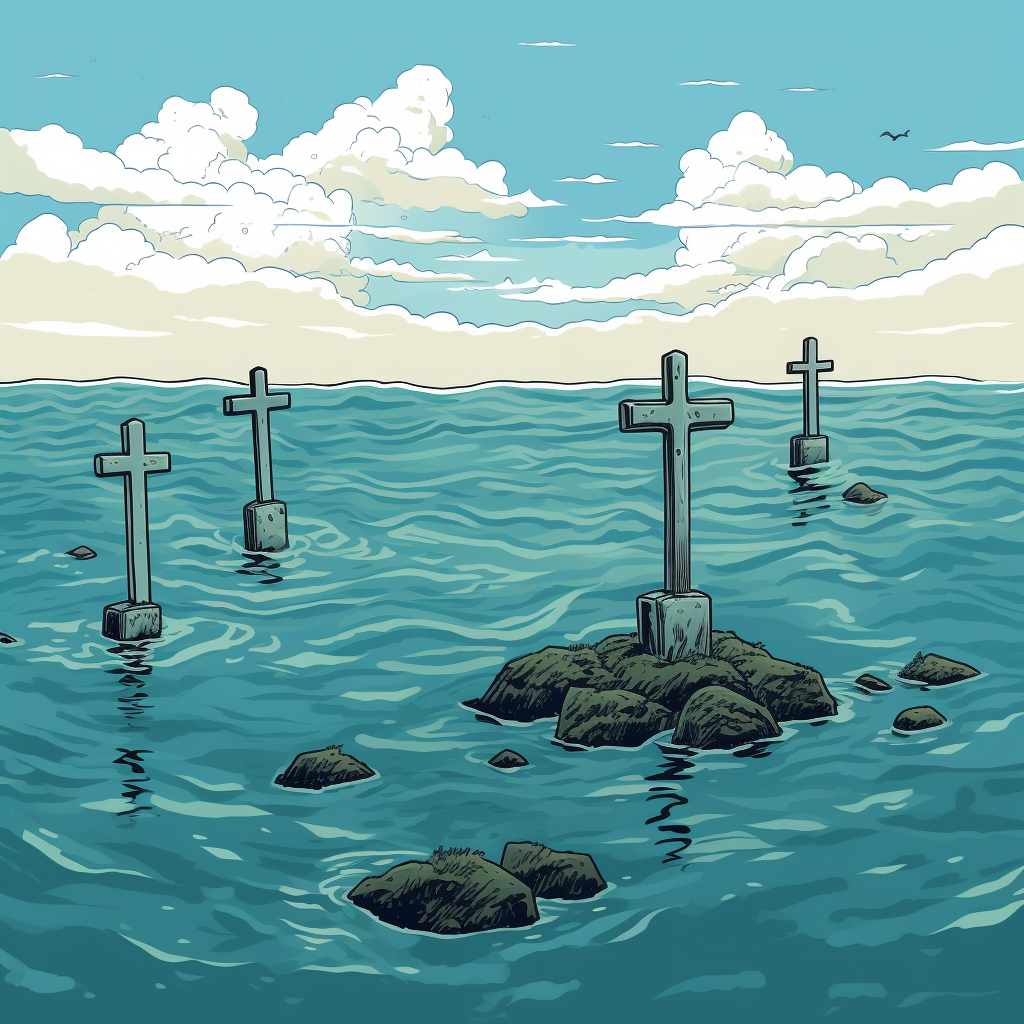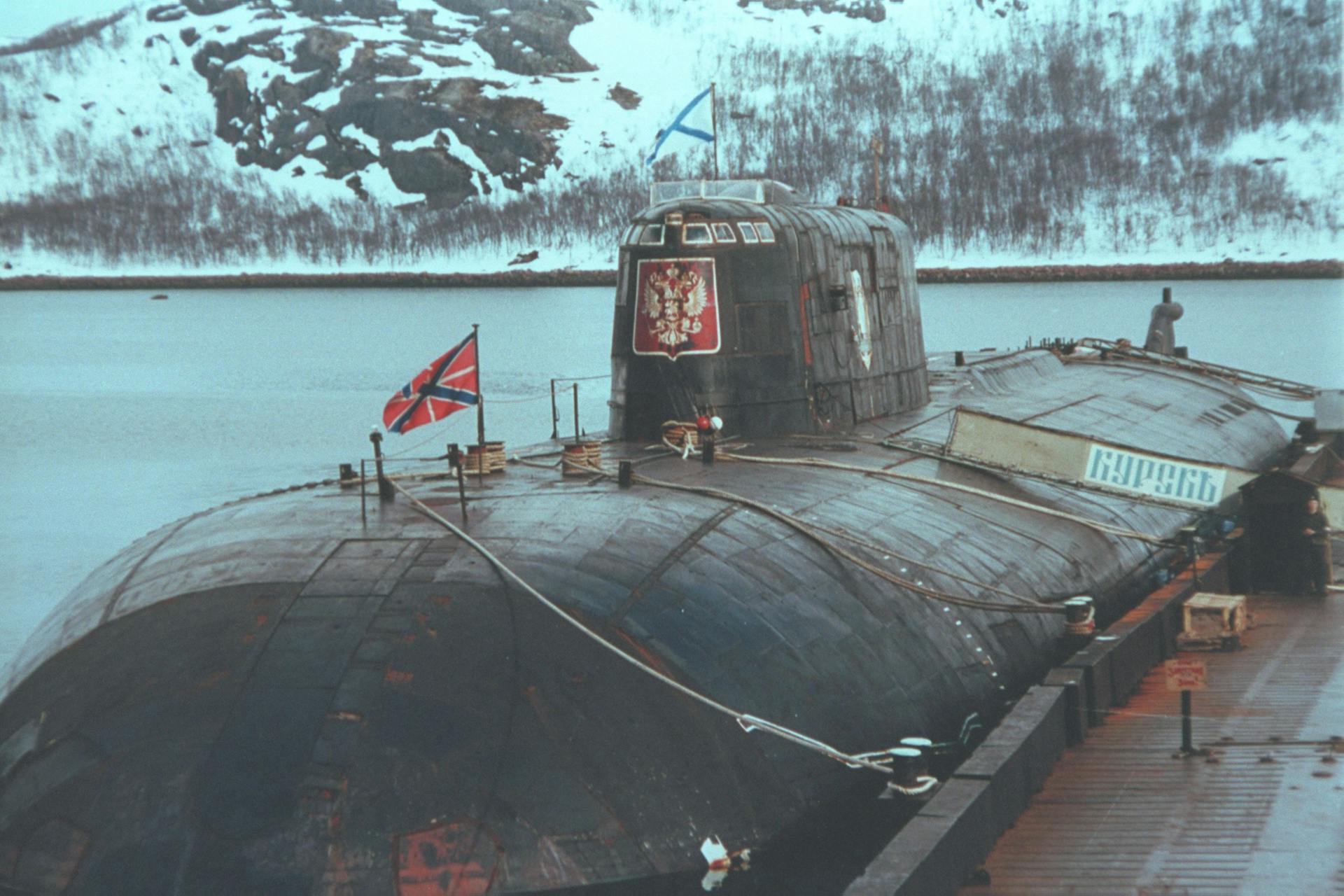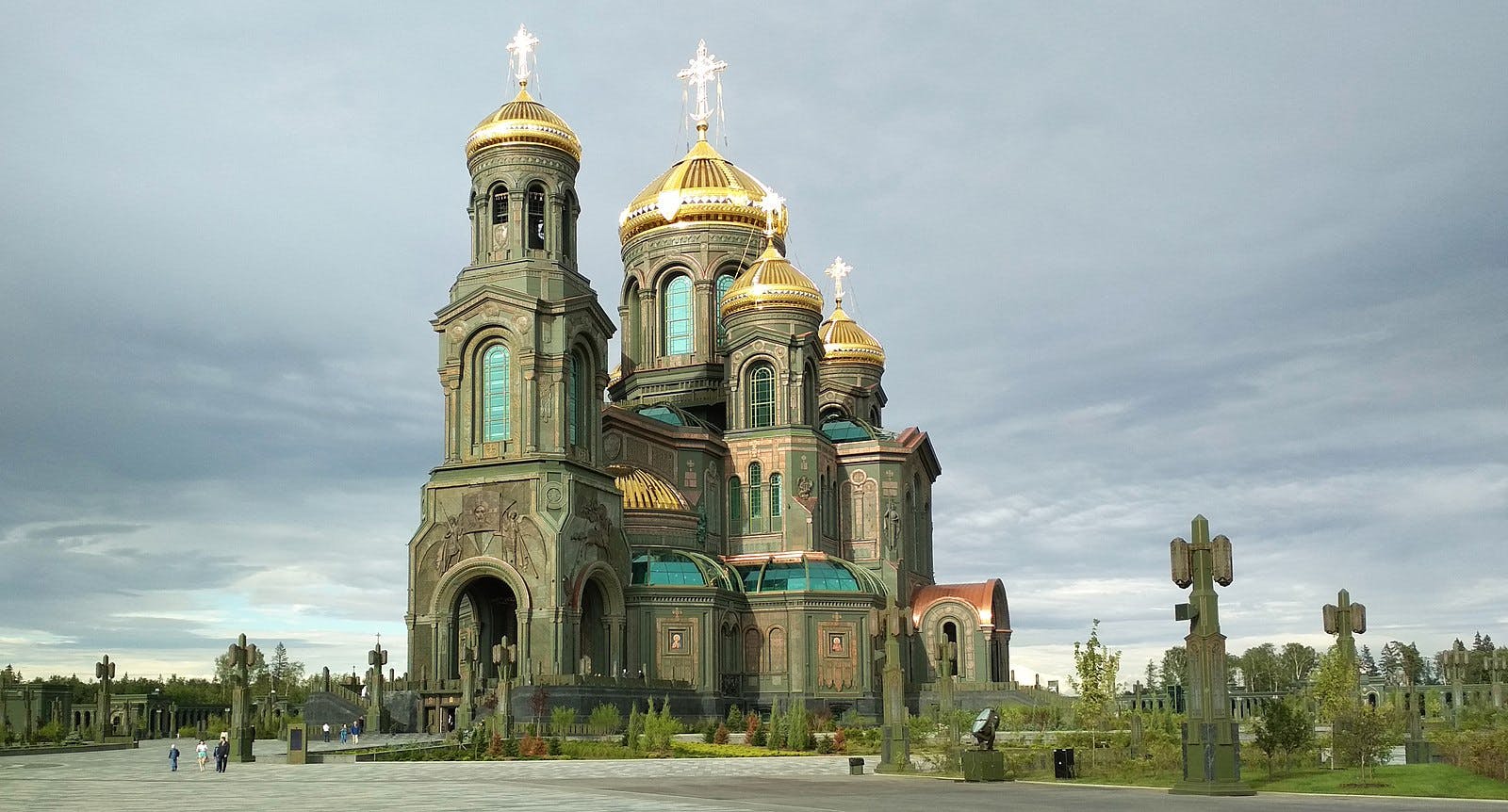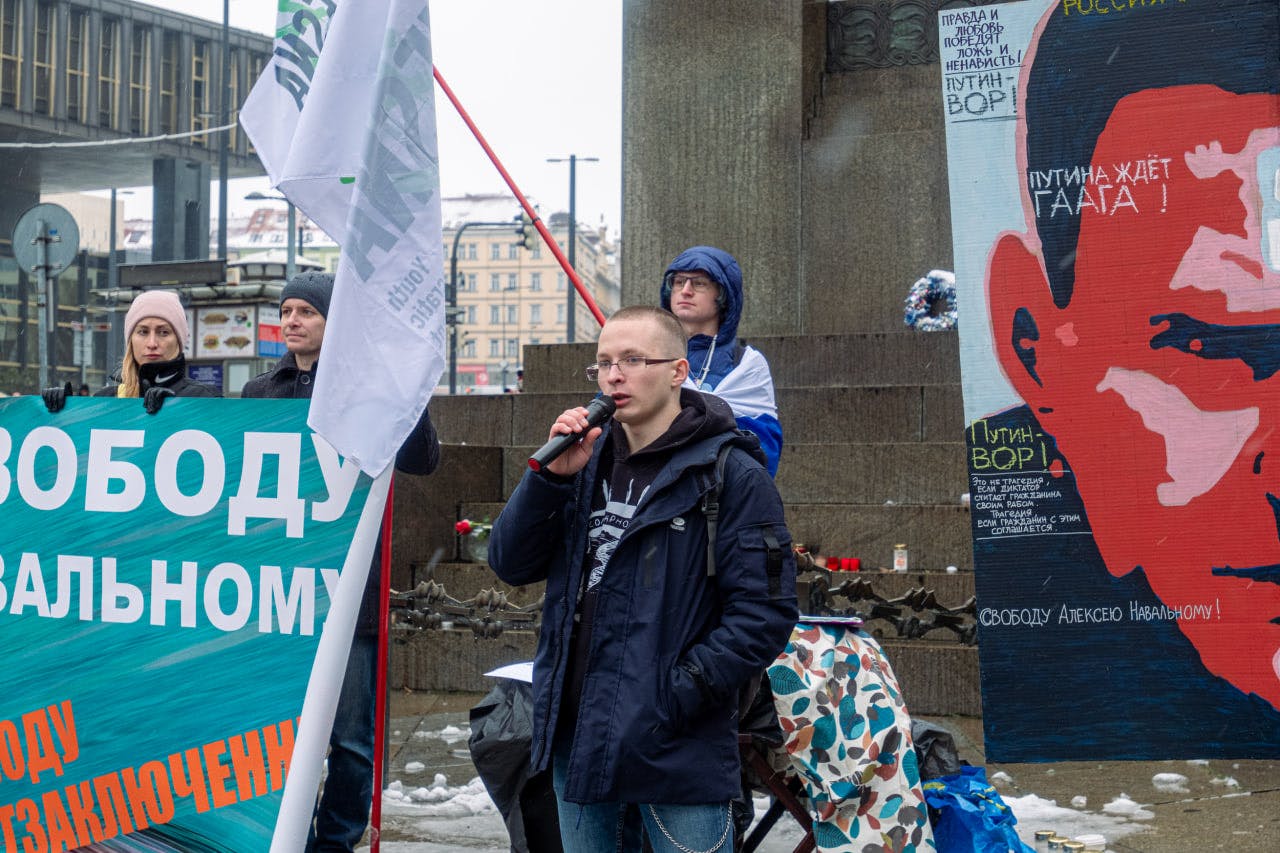How All of Russian TV Became State-Controlled
Short biography of the freedom that never happened.



Kursk was a of the Russian Navy. Its construction began in 1990 and was finished despite the collapse of the Soviet Union.

The submarine was named Kursk after the Battle of Kursk: the large-scale engagement between the forces of Nazi Germany and the Soviet Union, known as the largest tank battle in history resulting in a Soviet victory. Kursk, which gave the battle its name, is a small city of 450.000 people and an administrative centre of the Kursk region.
It was launched in 1994, as a part of Russia's Northern Fleet. The fleet suffered major funding cutbacks throughout the 1990s. This led to poor upkeep of their equipment, including submarines. Many Northern Fleet sailors had also gone unpaid.
The submarine had somewhat of a mythical status of an “unsinkable submarine” as summarized in an article by Guardian. It was claimed that it could whitstand a direct hit from a torpedo. For this reason, it had the privilege to carry actual weapons even during the naval exercises.
In her five-year tenure, Kursk undertook just a single mission—a six-month deployment to the Mediterranean Sea in the summer of 1999. This mission involved monitoring the United States Sixth Fleet's response to the Kosovo crisis. As a result, many of her crew had spent little time at sea and were inexperienced.
In August 2000, the Kursk submarine participated in the “Summer-X” naval exercise—a significant event for the Russian Navy after over a decade. During this exercise, Kursk was equipped with live combat weapons, a privilege granted to only a few vessels. On the first day, it successfully launched a Granit missile with a dummy warhead (as a part of the exercise). However, tragedy struck two days later.
On August 12, 2000, while preparing to fire dummy torpedoes at the Kirov-class battlecruiser Pyotr Velikiy (as part of the naval exercise), an explosion occurred. The submarine sank after the explosion, in relatively shallow waters. All 118 personnel on board died—95 of them immediately, 23 approximately 6 hours later.
Explosion of the submarine was detected almost immediately, but the surrounding ships thought it to be a part of the exercise. For this reason, the rescue mission started only 6 hours after the explosion.
The British and Norwegian navies offered assistance, but the Russian government refused. Minister of Defence Igor Sergeyev claimed that the rescue was well underway. Vladimir Putin authorised the Russian Navy to accept the help only 5 days after the incident.
Russian and Norwegian divers found 23 bodies in the ninth compartment. It is believed that those crew members survived the initial explosion and were hiding in the wreckage for up to 6 hours. All of them ultimately died either by burning to death or of suffocation.
The army initially provided multiple versions of what caused the accident. Fleet Admiral Vladimir Kuroyedov said that Kursk collided with the foreign NATO vessel without providing evidence. This claim was supported by Russian Navy commanders for over two years, fueled by those seeking strained Russia-West relations.
Ultimately the official investigation found a technical fault to be the cause - a leak of highly concentrated hydrogen peroxide in the torpedo's casing—as reported by independent media worldwide (BBC, for example). Geophysicists and torpedo designers later supported this version of events.
Vice-Admiral Valery Ryazantsev blamed the systemic problems in the Russian army. He said poor training, maintenance, and inspections led to mishandling the weapon. A burned safety instruction copy found in the wreckage wasn't relevant to the torpedo. Kursk's crew lacked experience and training with HTP torpedoes. Inadequate inspections led to faulty actions. Ryazantsev believes these factors caused the explosion.
The Russian Navy initially downplayed the incident, the official search was ordered only 9 hours after the explosion. The rescue attempt process was somewhat urged by the relatives of the crew members, as the rumours of technical issues with the submarine started to spread among the community.
The first official announcement happened 2 days after the explosion, on 14 August. The media were informed that the submarine descended to the ocean floor, but:
All of those claims were proven false later, as there were no survivors left 6 hours after the explosion.
At the time of the incident, Vladimir Putin was shown on TV to enjoy his holiday in a seaside resort in Sochi. Despite his being informed immediately on the disaster, he only returned after 5 days. He later commented on the matter:
I probably should have returned to Moscow, but nothing would have changed. I had the same level of communication both in Sochi and in Moscow, but from a PR point of view I could have demonstrated some special eagerness to return.
BBC Europe
Another memorable moment was Vladimir Putin's interview on CNN with Larry King. When he was asked what happened to the submarine, he simply replied “She sank”. Many Russians remember this statement as a symbol of the disattached reaction to the disaster.
Media and the general public were extremely critical of this. Images of angry family members demanding information or waiting anxiously at the dock for news were shown in the media worldwide. It was a PR disaster for Vladimir Putin: his highly favourable ratings dropped dramatically.
Boris Kuznetsov, the lawyer of the families of 55 men onboard, sees the tragedy as a turning point for modern Russia. The Russian government, military and Vladimir Putin never took responsibility, according to him. Kuznetsov currently resides in the United States under a political asylum, because the Russian government issued an international arrest warrant for him.
The role of the Russian army is crucial in state propaganda. World War II is referred to as the Great Patriotic War, where the Soviet forces saved the entire world from fascism (for the great personal sacrifice of the general Russian population). This glorification is manifested in commemorations, parades, and cultural events that honour the wartime achievements and resilience of the nation.
A famously grotesque example of this is the Cathedral of the Russian Armed Forces— an enormous church built near Moscow with a metallic facade in the shade of khaki colour.

The praise of the army serves also as a convenient excuse to tighten the laws prohibiting freedom of speech: one of the major laws targeting freedom of speech is claiming to protect the armed forces from “discreditation” (read our article on this: “Discrediting” the armed forces).
Despite its status in the Russian propaganda narratives, the army faces a multitude of issues. Few examples:
The Russian invasion of Ukraine is, unfortunately, still an unfinished story. The Kursk disaster, however, is a well-explored moment in history. As such, we can use it to better understand the actual reality of the relationship between the Russian government and its army.
Tento článek ještě nebyl přeložen do češtiny. Hledáme dobrovolníky kteří by nám s tím pomohli.
Short biography of the freedom that never happened.

...nevzdávejte se a nezoufejte, dělejte to, co považujete za správné. Rusko určitě bude svobodné.

How to explain support for Russia in German politics

Naše mediální platforma by neexistovala bez našeho mezinárodního týmu dobrovolníků. Chcete se stát jedním/jednou z nich? Zde je seznam aktuálně otevřených pozic:
Je nějaká další oblast ve které byste nám rádi pomohli? Dejte nám vědět:
Mluvíme o současných problémech Ruska a jeho obyvatel, o boji proti válce a za demokracii. Snažíme se, aby byl náš obsah co nejpřístupnější evropskému publiku.
Chcete spolupracovat na obsahu, který vytvořili ruští autoři stojící proti válce?
Chceme, aby lidé v Rusku, kteří se zasazují o mír a demokracii, byli slyšet. Zveřejňujeme jejich příběhy a děláme s nimi rozhovory v rámci projektu Ptej se Rusů.
Jste ruský občan nebo znáte někoho, kdo by se chtěl podělit o svůj příběh? Obraťte se na nás. Vaše zkušenosti pomohou lidem pochopit, jak Rusko funguje.
Vaše zkušenosti můžeme zveřejnit anonymně.
Náš projekt vedou dobrovolníci z celého světa - žádný člen týmu není nijak placen. Projekt však má provozní náklady: hosting, domény, předplatné placených online služeb (např. Midjourney nebo Fillout.com) a reklamu.
Číslo našeho transparentního bankovního účtu je 2702660360/2010, založená je u Fio Banky (Česká republika). Můžete nám buď poslat peníze přímo na něj, nebo nascanovat jeden z QR kódů níže ve vaší bankovní aplikaci:




Poznámka: QR kódy fungují pouze pokud je nascanujete přímo z vaší bankovní aplikace.
Rusko zahájilo válku proti Ukrajině. Tato válka probíhá od roku 2014. 24. února 2022 se pouze zintenzivněla. Miliony Ukrajinců trpí. Ruští činitelé kteří válku zavinili, musí být za své zločiny postaveni před soud.
Ruský režim se snaží umlčet pro-demokratickou část společnosti. Ruští lidé, kteří jsou proti válce, existují - a ruský režim se je snaží ze všech sil umlčet. Chceme tomu zabránit a jejich hlasy nechat zaznít.
Spojení je klíčové. Ruské pro-demokratické iniciativy jsou pro evropskou veřejnost často těžko čitelné. Právní, sociální a historické souvislosti Ruska nejsou vždy jasné. Chceme sdílet informace, budovat mosty a propojovat pro-demokratickou část Ruska se Západem.
Věříme v dialog, ne v izolaci. Opoziční síly v Rusku nebudou schopny cokoli změnit bez podpory demokratického světa. Věříme také, že dialog by měl probíhat oběma směry.
Výběr je na vás. Chápeme hněv vůči ruským zločinům. Jen na vás záleží, zda chcete naslouchat ruskému lidu, který se proti tomu staví.